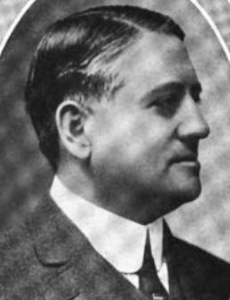
Charles Howard Kline served as the 47th Mayor of Pittsburgh from 1926 to 1933.

May Jane Walker Burleson - "Jennie" May Burleson (1888–1957) was a notable socialite, artist, and Texan suffragette who was the Grand Marshal of the Woman Suffrage Parade of 1913 in Washington, DC. Mounted with confidence on her horse, she led a parade of 5,000 people up Pennsylvania Avenue, Washington, DC and "into a melee that changed the direction of the suffrage movement." During the 1930s her name was associated with scandal, attracting wide media attention in Texas, as she shot and killed the woman her husband married after their contentious divorce in 1938.
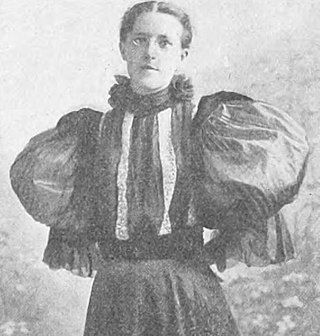
Elise Mercur, also known as Elise Mercur Wagner, was Pittsburgh, Pennsylvania's first female architect. She was raised in a prominent family and educated abroad in France and Germany before completing training as an architect at the Pennsylvania Academy of the Fine Arts. Her first major commission, for the design of the Woman's Building for the Cotton States and International Exposition of Atlanta, was secured in 1894, while she was apprenticed to Thomas Boyd. It was the first time a woman had headed an architectural project in the South. After completing a six-year internship, she opened her own practice in 1896, where she focused on designing private homes and public buildings, such as churches, hospitals, schools, and buildings for organizations like the YMCA/YWCA.
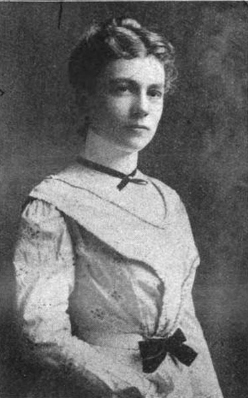
Gertrude Breslau Hunt was an American writer and lecturer from Chicago. One of the leading writers for the Socialist Party of America, she often wrote about women's issues, and was active in the suffrage movement. She also published under the name Gertrude Breslau Fuller.

Julian Kennedy was an American engineer and inventor, known for his national and international contributions to the steel industry. He was awarded the ASME Medal in 1928.
The 1908 Carnegie Tech Tartans football team represented the Carnegie Institute of Technology—now known as Carnegie Mellon University—as an independent during the 1908 college football season. Led by William F. Knox in his first and only season as head coach, Carnegie Tech compiled a record of 3–7.
Jennie Bradley Roessing was a leader in Pennsylvania's women's suffrage movement during the early 1900s. She was an active participant in the women's suffrage movement and various Pittsburgh-area organizations.

Jennie V. Hughes was an American Methodist missionary in China. She co-founded the Bethel Mission in Shanghai with Chinese doctor Shi Meiyu.
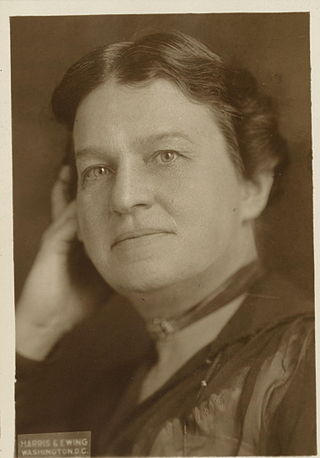
Ella Riegel was an American suffragist and women's rights activist. Riegel was a graduate of the first class of Bryn Mawr College and would remain associated with the college the rest of her life.

The Suffrage Special was an event created by the Congressional Union for Woman Suffrage in 1916. The Suffrage Special toured the "free states" which had already allowed women's suffrage in the United States. The delegates were raising awareness of the national women's suffrage amendment. They were also looking to start a new political party, the National Women's Party (NWP). The Suffrage Special, also known as the "flying squadron" left Washington, D.C., and toured the Western states by train for 38 days starting on April 9, 1916. Famous and well-known suffragists made up the envoy of the Suffrage Special. They toured several states during their journey and were largely well-received. When the tour was over, the delegates of the Suffrage Special visited Congress where they presented petitions for women's suffrage they had collected on their journey.
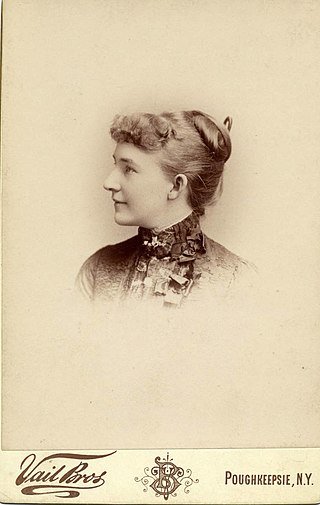
Adelaide Underhill was an American librarian. She was hired to catalog and update the organization of volumes in the Vassar College library. She used the Dewey Decimal System and, along with help from her lifelong companion, Lucy Maynard Salmon, built Vassar's into one of the most impressive collections for a liberal arts college at the time.

Eleanor Hiestand Moore, born Eleanor Moore Gill, was an American physician, writer, editor, and suffragist. She coined the suffrage slogan "Ballots for Both", to win a 1916 contest.

Hannah Jane Patterson was an American suffragist and social activist. She was a key member of the women's suffrage movement in Pennsylvania and worked for the National American Woman Suffrage Association. During World War I Patterson was a member of the Woman's Committee of the Council of National Defense. For her service, she was awarded with a Distinguished Service Medal. Patterson graduated from Wilson College and studied at both Columbia University and the University of Pennsylvania.

This is a timeline of women's suffrage in Pennsylvania. Activists in the state began working towards women's rights in the early 1850s, when two women's rights conventions discussed women's suffrage. A statewide group, the Pennsylvania Woman Suffrage Association (PWSA), was formed in 1869. Other regional groups were formed throughout the state over the years. Suffragists in Pittsburgh created the "Pittsburgh Plan" in 1911. In 1915, a campaign to influence voters to support women's suffrage on the November 2 referendum took place. Despite these efforts, the referendum failed. On June 24, 1919, Pennsylvania became the seventh state to ratify the Nineteenth Amendment. Pennsylvania women voted for the first time on November 2, 1920.

Women's suffrage in Pennsylvania was an outgrowth of the abolitionist movement in the state. Early women's suffrage advocates in Pennsylvania not only wanted equal suffrage for white women, but for all African Americans. The first women's rights convention in the state was organized by Quakers and held in Chester County in 1852. Philadelphia would host the fifth National Women's Rights Convention in 1854. Later years saw suffragists forming a statewide group, the Pennsylvania Woman Suffrage Association (PWSA), and other smaller groups throughout the state. Early efforts moved slowly, but steadily, with suffragists raising awareness and winning endorsements from labor unions.

Annie Louise Hall was an American suffragist and saleswoman. Hall worked as a teacher for many years, but after her experiences at a settlement house in New York City, she turned to suffrage work. Hall had experience working for women's suffrage in Connecticut, Massachusetts, New Hampshire, New York, Ohio, Pennsylvania, and Rhode Island. After her women's suffrage work, she went on to work as a saleswoman and eventually retired with her life partner to Ojai, California.
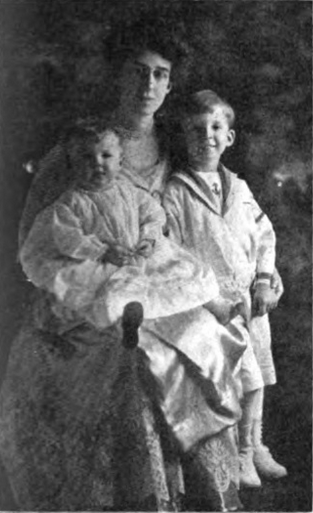
Lucy Kennedy Miller (1880–1962), also known as Mrs. John O. Miller, was a prominent 20th-century American suffragist who became the president of the Equal Franchise Federation of Pittsburgh, Pennsylvania and the first president of the Pennsylvania League of Women Voters (PLWV). In 1919, the League of Women Citizens of Pennsylvania called her "the woman to whom, more than to any other" was "owe[d] the triumph of" women's suffrage in the Commonwealth of Pennsylvania.

Eliza Kennedy Smith, also known as Mrs. R. Templeton Smith, was a 20th-century American suffragist, civic activist, and government reformer in Pittsburgh, Pennsylvania. Upon her death in 1964, The Pittsburgh Press described her as "a relentless, tenacious watchdog of the City's purse strings" who "probably attended more budget sessions over the years than anyone else in Pittsburgh either in or out of government".
















